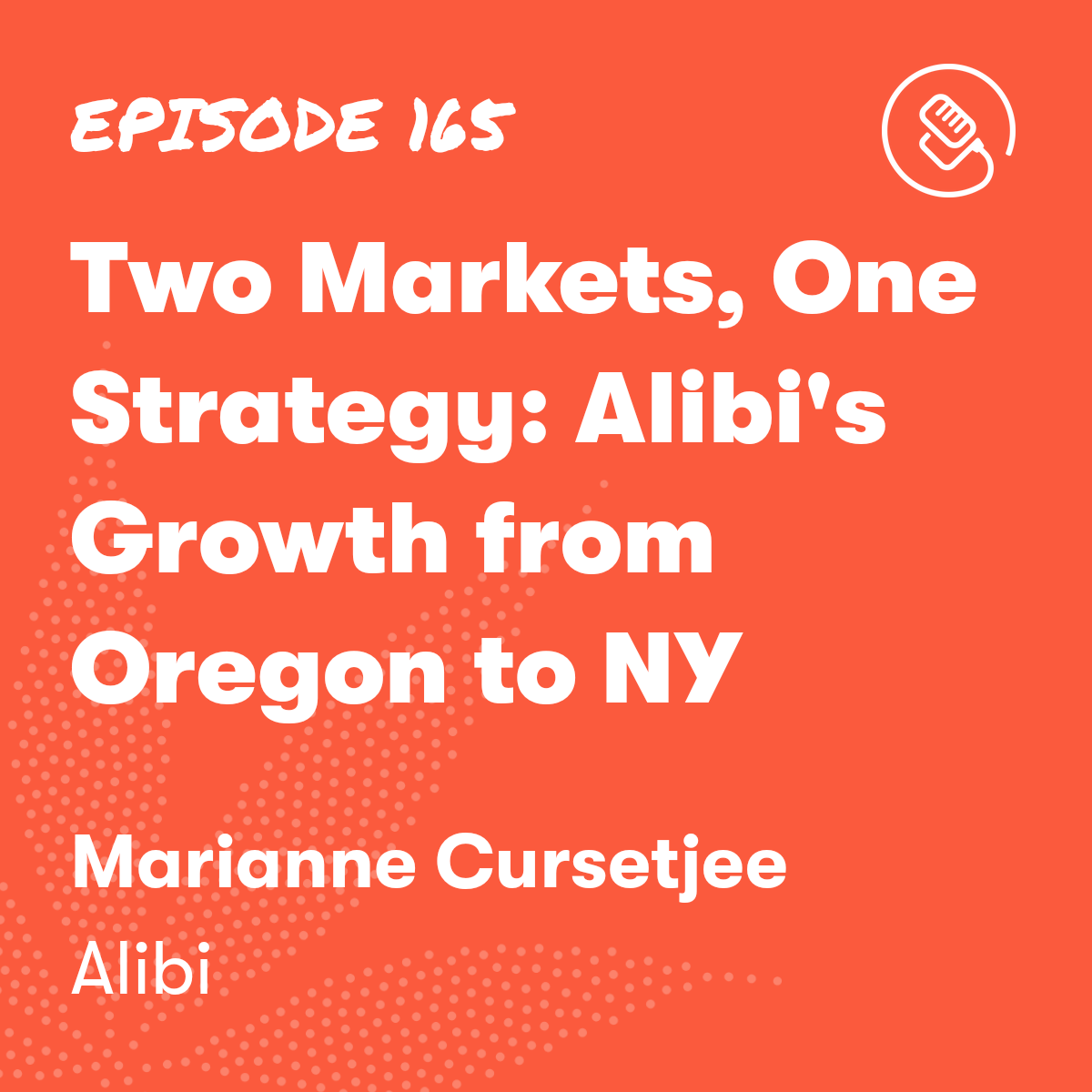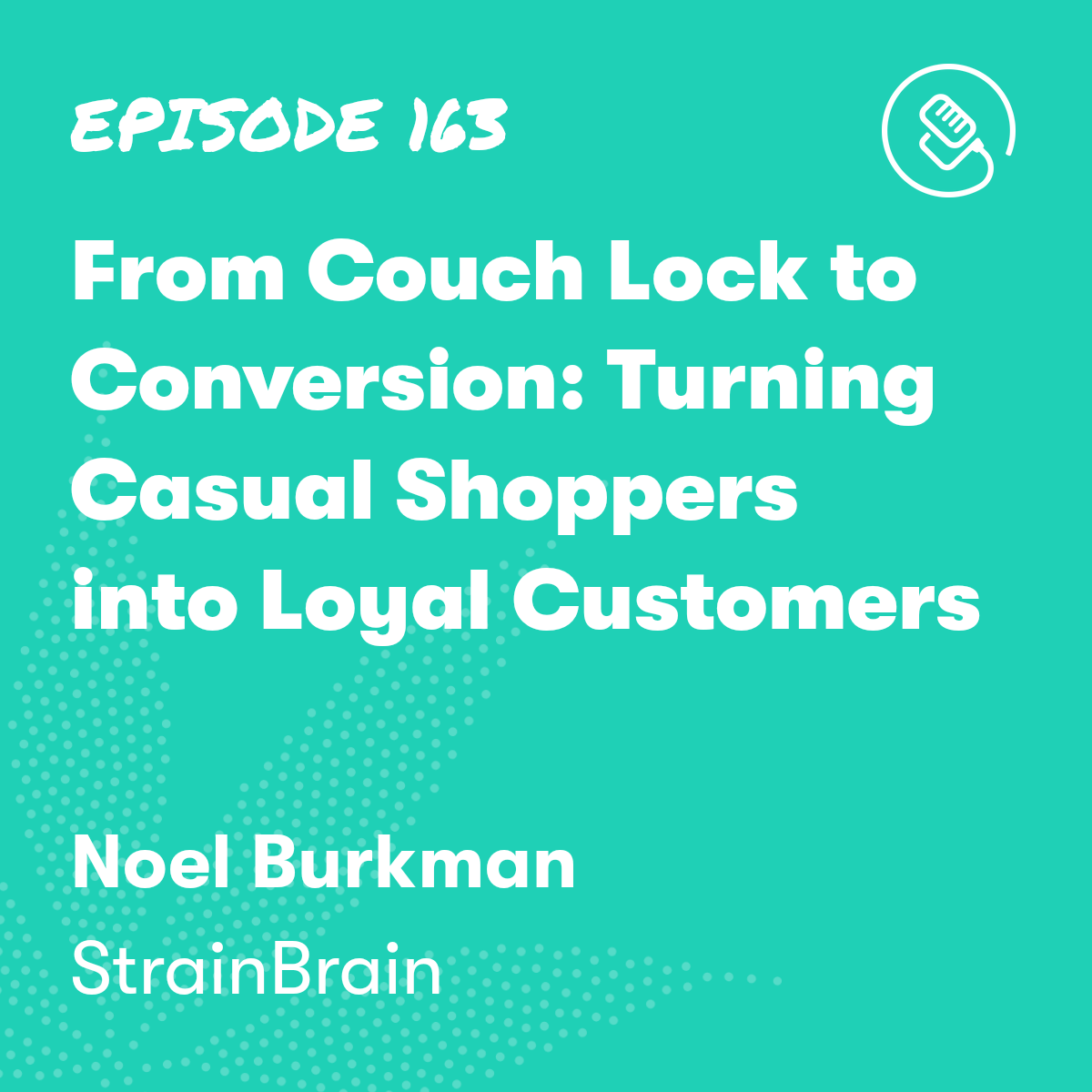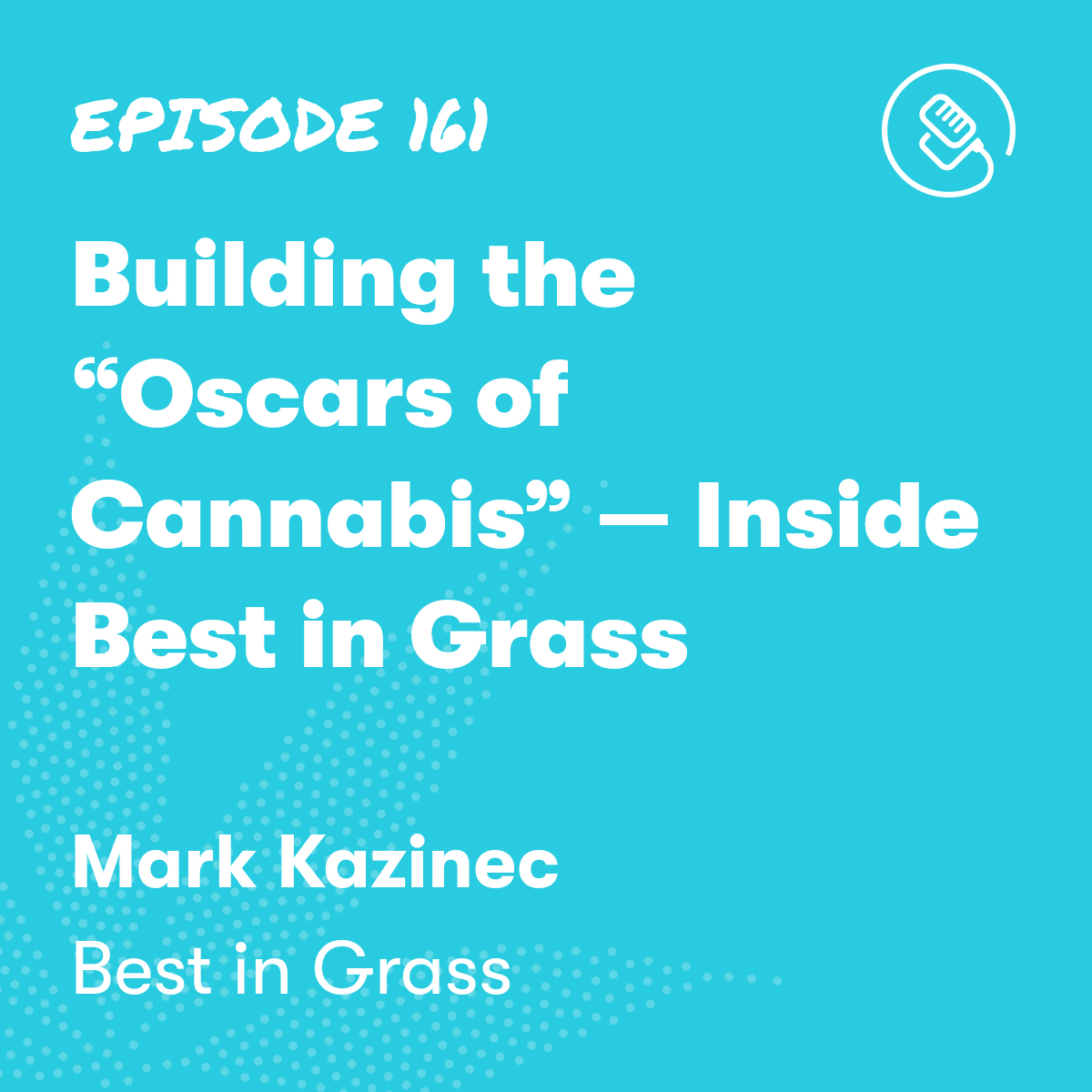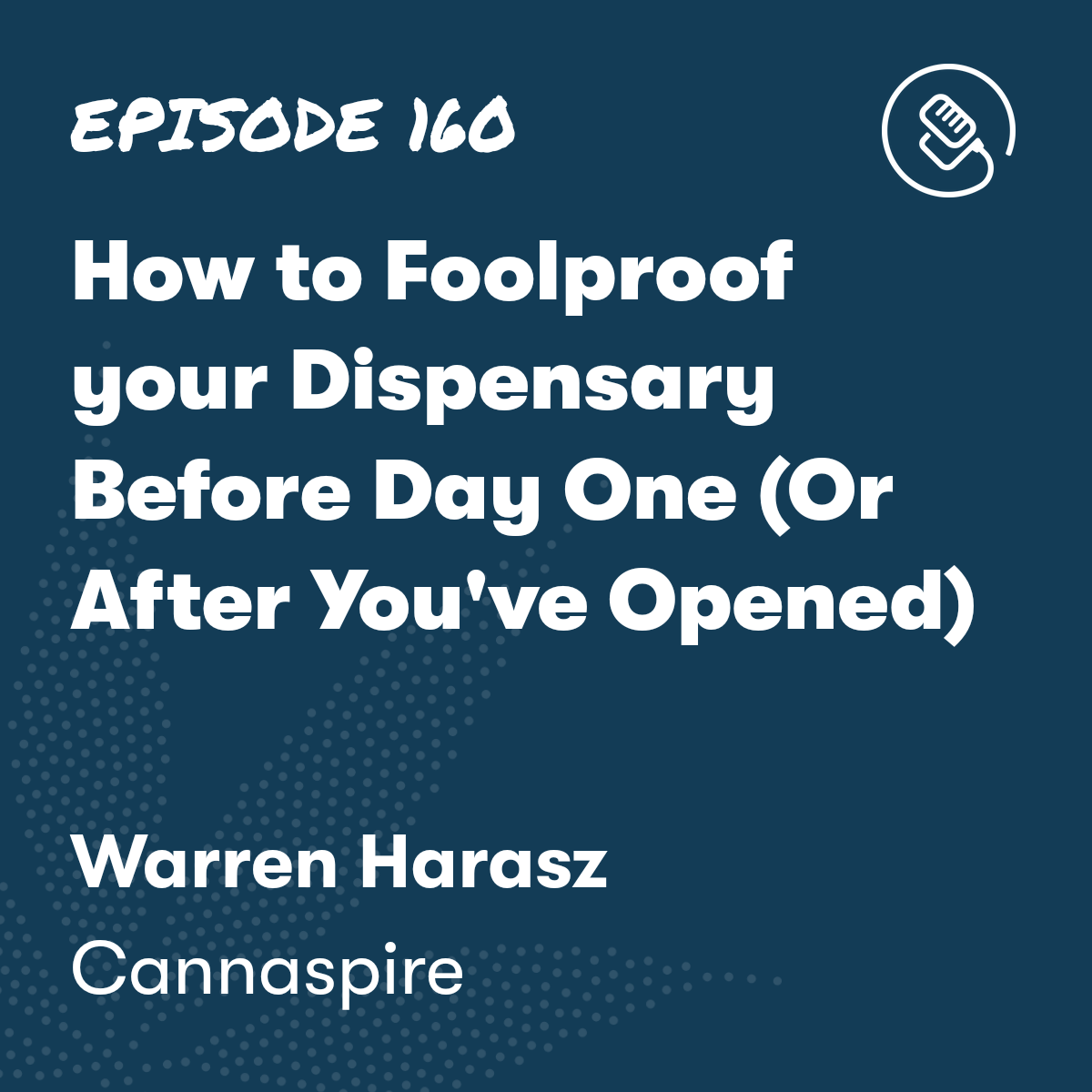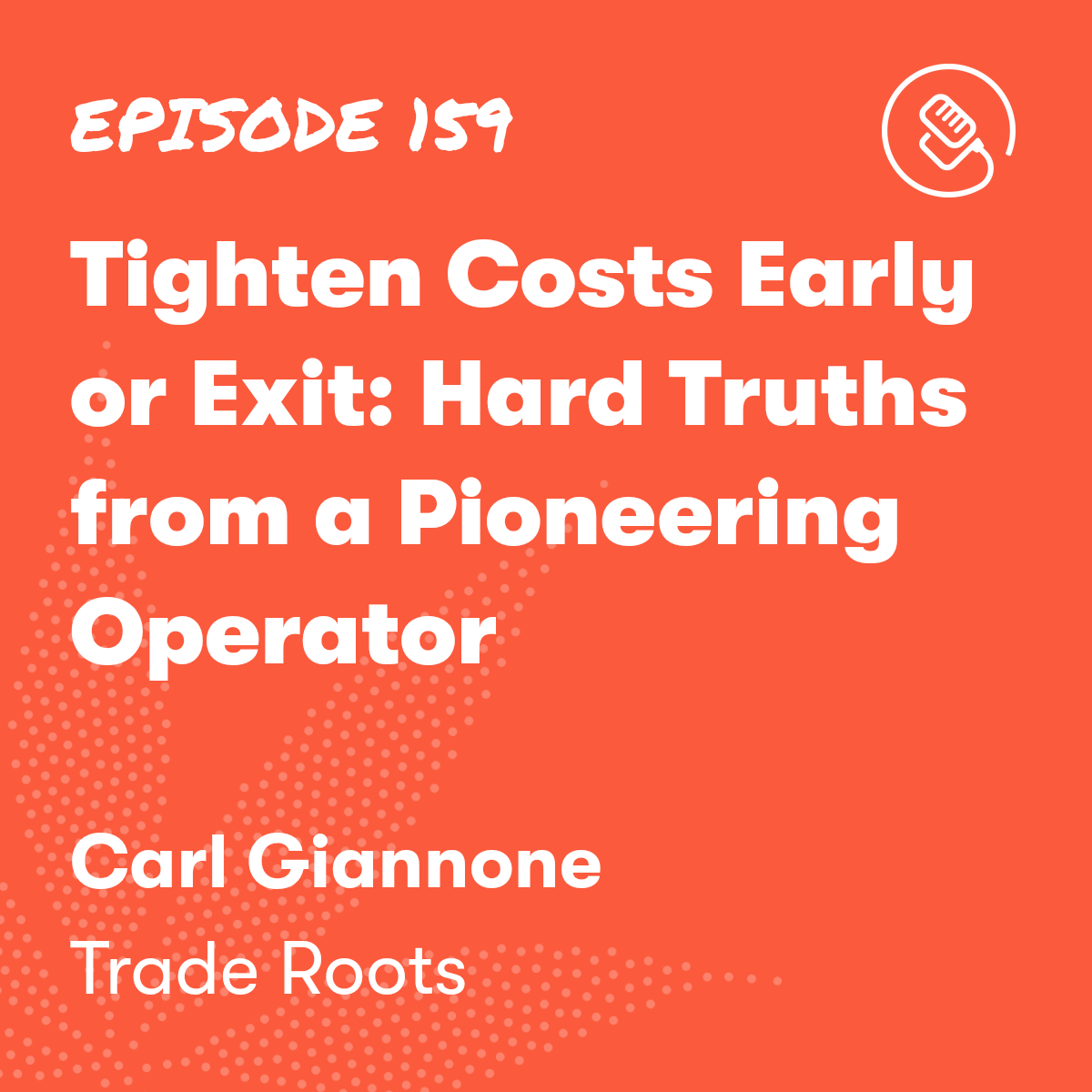

Reform on The Horizon: Aaron Smith Discusses The Future of Cannabis
Episode Description

Episode Transcript
Welcome to the KayaCast, the podcast for cannabis businesses looking to launch, grow, and scale their operations. Each week, we bring you interviews with industry experts and successful retailers, plus practical tips and strategies to help you succeed in the fast growing cannabis industry.
Tommy: Well, thanks everybody for joining us today.
We have a, uh, we have a special episode. I am here with Aaron, the founder and CEO of the NCIA, the oldest and largest organization, I would say in the world, right? You got to be the largest. Yeah. So it's nice having you on. Great to be here. So, you know, for the very small uh, group of people that, uh, you know, are listening that do not know about the NCIA, can you just give us a quick kind of a summary on what you guys are about?
Aaron: Yeah, so we are a trade association that represents the industry very broadly across the United States. We represent cannabis businesses from all verticals, from growers to retailers to manufacturers and processors, as well as all of the ancillary businesses that are that are in the space. And our focus is federal lobbying, trying to change federal law.
So that, uh, here in the United States we can have, uh, interstate commerce, uh, and be treated, uh, fairly like any other legal, uh, American industry.
Tommy: Well, changing federal law, not an easy task.
Aaron: Yeah, certainly, certainly these days getting Congress to do anything, even keeping the government open is, uh, is, is a big deal now.
So, um, you know, but, but we're up to the task and, and, you know, there's some light at the tunnel, I think. So
Tommy: I know that there has been some, uh, some news regarding reclassification. Right. So, you know, talk to us about what's, uh, what is the forefront of what's going on with, uh, cannabis reclassification?
Aaron: Yeah, so, well, I mean, it's kind of just backing up to, um, about a year ago, the, uh, the president, uh, directed, uh, FDA To a health human services department to, um, come up with a recommendation on, you know, whether cannabis should be reclassified. It's currently in a schedule 1 status under US law, which means it has, uh, supposedly has no medical benefit, no medical value and a high potential for abuse, meaning that it can't be prescribed by doctors.
Uh, it's, you know, it's, it's up there with, with heroin and LSD. Um, so, you know, fast forward to, uh, the summer, the, uh, FDA came out with the recommendation to DEA that the cannabis should be moved from Schedule 1 to Schedule 3. Schedule 3 is not making the industry legal. Schedule 3 would, but, but schedule 3 does acknowledge medical benefit.
It puts cannabis next to, um, drugs like, uh, uh, uh, you know, um, I'm sorry. Steroids and, uh, drugs that have a high potential for abuse yet have a great medical value, which, you know, we don't believe cannabis has a high potential for abuse, but it's a, it's a step in the right direction.
Tommy: So what does, uh, what is the main differences?
from having a Schedule 1 or Schedule 2 classification to Schedule 3?
Aaron: Yeah, so Schedule 1 to 3 means that, well, from, for the cannabis industry as we know it, there's not a lot of changes. It's, uh, the cannabis industry would still be operating outside of federal law because Um, to get a schedule three pharmaceutical out there, you know, like I said, steroids is an example of a schedule three pharmaceutical to get that on the market.
It has to go through FDA trials. It's upwards of a billion dollar process to get an FDA approved drug on the market, and then it needs to be prescribed by a doctor. Under very strict conditions, um, it needs to be dispensed through a pharmacy, not, you know, not a dispensary, uh, uh, a state licensed dispensary.
So the state licensed businesses would still be really outside of that system. Um, it could open up opportunities for, and it will open up opportunities for pharmaceuticalized cannabis, uh, and that's. You know, that's not a bad thing, but that still doesn't meet the needs of the modern cannabis consumer.
Um, one, you know, one benefit it'll have to the industry, though, is that it eliminates the burden of Section 280E of the tax code. So, that's huge for, you know, anybody's trying to operate in this space, um, knows that can't, you know, if you're trafficking, quote unquote, trafficking in cannabis or any Schedule 1 or 2 substance.
You can't deduct the expenses from your, your taxes that will go away when it moves to schedule three. And that's, and that's huge for the industry. Um, and then it also creates momentum for, uh, de scheduling we call it, you know, you know, actually moving forward with federal legalization down the road. So
Tommy: that's, that's probably the biggest, the biggest change is, um, Not having to deal with 280E, and especially if you're a non vertical, vertically integrated, um, cannabis business, just dispensary, 280E is, it's, it makes it so difficult to run profitably and actually make, uh, you know, make money in this industry.
So that's huge, but what you're saying is from a federal standpoint, nothing kind of changes in terms of the legality. Yeah. Um, You know, if there's an abundance of product in one state, you can't really necessarily ship it to another state to sell.
Aaron: Yeah, this would not legalize, um, the interstate commerce.
It really, it, it again, doesn't actually legalize the activity that's already happening in the States. Um, there are some concerns and I, I. They're valid concerns, but I don't share them as much as others, but there are some concerns that, you know, actually moving to Schedule 3, there's now a whole new federal statute that comes into play, the Food and Drug and Cosmetic Act, which is, uh, enforced by the FDA.
So it kind of moves the jurisdiction from DEA to FDA and the FDA could begin sending letters out to every, you know, every licensed marijuana business in the country saying you're out of compliance with the law. These drugs are not approved by the FDA and you need to, you need to stop that, you know, for the cost of a postage stamp.
Uh, they could really upend the industry doing that. I don't think that that's likely, um, but it is something that's, you know, of concern. And we're working to, we're working with Congress and the administration to have some enforcement guidance. Um, on the congressional side, uh, Congress has the opportunity to defund that sort of behavior.
So that sort of activity from FDA, they could say, You know, if businesses are compliant with state law, the FDA does not have the authority to use tax dollars to undermine those state laws and go after those businesses, essentially. And they've done something similar for medical cannabis dating back to 2014 that continues to be in the federal budget.
So that's one way, uh, that's one way to affect. The enforcement priorities, another way would be, which I think is pretty likely, would be to have a memo out of the Justice Department that says, you know, just to clarify, we're using our enforcement priorities. To go after illegal marijuana businesses, not state compliant cannabis businesses that are licensed under state laws.
And I think politically, that's the likely outcome. Certainly the Biden administration doesn't want to have a crackdown on cannabis. We, this whole. The, you know, this whole change is being made and I can say, I'll back up and say the change isn't necessarily being made. This is a recommendation. I think it will be acted upon, but when it, when it is acted upon, it's being done.
So, because there's political pressure to to relax cannabis laws, because 70 percent of Americans want to see it legal. Biden is not the biggest fan of cannabis himself, but his, his campaign and the people around him are saying, need to do something. So if, to have this backfire into a series of crackdowns seems unlikely, and even if we have a Trump presidency.
Um, which, you know, that's the likely, the likely, uh, nominee on the, on the GOP side. Well, we've, we've already been through a Trump presidency and there was no crackdown then. So, you know, I think that likelihood we're going to see sort of the status quo where the federal government just turns the other way at state licensed businesses for the most part.
But we have relief from 280E and, uh, but we've got to continue to fight for de scheduling so that we can have. Interstate commerce so that we can have banking access that's normalized and, you know, really to treat the industry fairly like any other, any other industry. Gotcha. So, you
Tommy: know, how close are we to reclassification or rescheduling?
Aaron: So, you know, I mean, that your guess is as good as mine to be honest on that, but I, I would expect this to be done, uh, before the election. You know, I think this is sort of a political, there's political pressure to get this done. Um, it's not going to be, you know, it's not an expedient process. The FDA and the DEA, these are, These are slow moving organizations.
The way that the process works is that FDA made the recommendation. DEA now has, they can do whatever they want with it. The DEA has authority to reschedule and they're the only agency that does. So, I think the likely outcome is that they will. To accept the recommendation to move this to schedule 3, because, you know, the DEA also reports to the president, the DEA administrator, and the, but to get there, there needs to be an administrative review process.
Which takes some time, it'll include public comments, so they'll hear comments from organizations like ours that are going to say. You know, we support Schedule 3 as an interim measure, but really this needs to be descheduled. That's our position, which the DEA has the authority to do as well. I don't think they will, but they have the authority to.
And they'll hear from, they'll hear from others folks on the other side that are saying, you know, the Reefer Madness people that are saying, you know, this needs to be kept in Schedule 1, even though that You know, defies all reason and and science on the issue. Um, and then it will go through that process and then they can make an, you know, an official change.
Um, so I think, you know, it's, it's certainly, uh, I think it's certainly likely to happen before the election, but it could be, you know, it could be the summer of next year fall before it really, really takes effect.
Tommy: Gotcha. So the DEA is the only organization responsible for reclassifying. Substances.
Aaron: The DEA or Congress, so it could, it could happen through congressional action.
Tommy: But that's, that's fascinating to me that, um, you know, the inner workings of how things get changed. So the, the DEA and Congress, they're the bodies that are responsible for reclassification and any substance that's in schedule on schedule 3, it's really the FDA that's responsible for administering and making sure that, you know, what are the processes that, uh, this.
Substance can be sold federally.
Aaron: Yeah, the FDA would have the jurisdiction over any, you know, any of these, these drugs that are prescription drugs. You know, you go, you go to the pharmacy and you get, you get codeine or antibiotics, whatever it is, those are all under the jurisdiction of the FDA. And this would put, um, cannabis there alongside, you know, an example of a schedule, another Schedule 3 drug would be Marinol, which is, um, synthetic.
THC that's used for, uh, you know, for a number of, a number of conditions. Um, so this would put it, put that there. Um, but yeah, Congress, Congress has the authority to change the law. They could, you know, Congress can do any, the law was created, the Controlled Substances Act was created by Congress. They could repeal it.
They wanted to, um, and they could certainly amend it in any way. And I don't think that, uh, and then the, the administration through the DEA has the authority to change the schedule. So they can move something up or down. They've, they've actually never moved anything from schedule 1 down to 2 or 3 in the past.
They've only actually moved in the other direction. Um, so this is sort of unprecedented in that regard.
Tommy: Yeah, that's, that's fascinating. I'm a novice when it comes to, uh, the inner workings of the garments. I'm happy that, yeah, we're connected. I'm learning a lot, actually. Um, this is probably one of the biggest piece of, uh, legislation that, that I think, um, our listeners are really interested in.
And the second part really is banking. So reclassifying to Schedule 3, that doesn't change banking
Aaron: at all, does it? No, you know, this, because again, you know, the businesses of the cannabis industry as we know it would still be out of, you know, out of compliance with federal law, which would still give. Uh, banks, some, you know, caution when it comes to especially providing lending, you know, a lot of, a lot more banks are, are providing depository services now.
Um, but, you know, it is, there's still a, a lack of access to, to, to lending and that kind of financing. So, um, there, there's the Safer Banking Act, which has been pending in Congress for. A number of years, um, that is continuing to build support that would address the banking issue just kind of on its own.
And it doesn't really address any other issues around the, uh, around cannabis prohibition, but, uh, that would provide some relief on the banking front. And we're, we're hopeful that in the next year, we, we could see that, uh, passed as well, but it's, it's been an uphill battle getting anything done in Congress these days as anybody watching the news would, would know.
So why
Tommy: has the Safe Banking Act, and I know that's been around, uh, and it's been on the floor quite a few times, what, what, what is the holdup?
Aaron: Well, I mean, there's, there's kind of right now, it's, it's general congressional dysfunction. I mean, you've got partisanship, you know, at a level where it's never been, where you have, you know, the Republicans don't want to give the Democrats a win, uh, and vice versa.
And they're very, uh, reluctant to work with each other to get anything done. So that's, that's a problem that. Is facing the country. It has nothing to do with cannabis and that's every, everybody's, everybody's working on Capitol Hill is, has, is frustrated by that, that scenario. Um, but it, you know, it also has had headwind over the years just because, especially Republican members of Congress see that this is, you know, ceding to the, the marijuana movement and they still are, you know, digging in as, uh, uh, reefer madness kind of minded, uh, Republican members, but there's less and less of those.
And. You know, we're seeing, you know, especially as more states come on, well, that those members of Congress now represent voters who voted to make this legal and even if they don't support legalization, more and more are coming to the mind that, you know, we need to do something about the banking issue because it's, you know, it's having a very cash heavy business in your district as a member of Congress is a, is a magnet, can be a magnet for crime and other problems.
Tommy: Can you talk a little bit about the State Banking Act? Like, what is the State Banking Act, and what are the changes proposed in
Aaron: this bill? So, you know, the current, current situation is you have anti money laundering laws, uh, bank regulate, banking regulations that, uh, prevent business of banks from doing business with the industry without fearing that they're going to run afoul of those laws, and that they're going to get sanctioned by the Department of Treasury in some way.
I'll say that, you know, Treasury Department has not been going after banks, but they're, they're, they're very risk averse. Um, this would provide an exemption saying, you know, if these businesses are state licensed businesses, that, you know, there's, there's kind of a safe harbor for financial institutions looking to do business with them.
That's. In effect, that's what, what it does. It also, you know, would open up access to credit card processing for, uh, for the industry, which is another big, you know, you know, while they can put their cash in a bank account these days, most businesses have bank accounts where they can deposit their cash checking account.
Um, they don't have access to credit card processing, which means that it's a cash heavy industry. It's. It's, it's burdensome to have this cash. It's dangerous. It's a, it's a nuisance to the consumer who has to go to an ATM in order to get their cannabis. And all of that gets resolved by this, this bill.
And it does really little else. It doesn't really. You know, this is why it has more support on the Republican side is it doesn't do a lot of other things that that, you know, advocates like us would like to see, and that's why it has the support of the American Bankers Association, which, frankly, is far more powerful organization than mine, um, that, uh, that, you know, has the ear of Congress.
Tommy: Gotcha. So this is. You know, it's definitely in the right direction. I mean, declassifying is the ultimate kind of, like, the ultimate goal that we have. But these two are big. I mean, I can see it helping a lot of businesses in states like Alaska, for example. Who, you know, don't necessarily have really good access, uh, to banking and it's quite expensive as well.
Is there anything else that's happening that, you know, you want to share with everybody, uh, today and, uh, you know, what's
Aaron: going on in Washington? Well, I mean, right now it's, you know, Congress is sort of in, in a. Bad place. They're struggling to keep the government open. Um, but they're, they're heading toward an election.
Uh, we just had a poll that was sort of the gold standard polling, uh, is the Gallup poll, which has been asking, uh, voters what they think of marijuana legalization since 1969, I think, uh, every year started off, it was in the single digits for support in 1969, and now it's 70 percent of Americans say they want to see marijuana made legal and that's across every single demographic that's conservative voters.
Progressive voters, Republican voters, Democratic voters, you know, uh, baby boomers, millennials, Gen Z, every demographic has majority support. And we also just hit a tipping point when Ohio voted to legalize cannabis in that state a couple of weeks ago, where now more than half of Americans live in a state where it's legal.
Uh, 53 percent live in a state where it's legal. So, you know, this means that most members of Congress represent a state where it's legal. Um, and, you know, almost half of the Senate represents a state where it's legal and that's, you know, really going to move the move the dial. I think as we head into the election and anybody who's, you know, running for elected office needs to look at those those numbers and realize this is an issue that they have to embrace or they're going to get left behind.
It's inevitable.
Tommy: It's inevitable. And the work that you guys do that you guys are doing is. Really pushing the pace towards declassification. I, um, you know, we're a member of the NCIA and maybe I want to take some time to talk to the audience on why you should be a member. You know, what is the benefit of being a member of NCIA and the
Aaron: work that you guys do?
Yeah. Well, thank you for your membership. And, and, you know, I, I would, I guess say, let's not say it's inevitable because it's not, and it seems inevitable because of this work that has been happening behind the scenes for decades, you know, not, you know, long, you know, NCIA has been doing this since 2010 on behalf of the businesses, but there were people that came before us that were.
advocating for this, uh, for, you know, longer than I've been alive. And this, you know, this is not, you know, there are a lot of issues facing that Congress right now from gun safety to climate change to the, you know, the national debt. Uh, there are a lot of issues facing Congress. And the only way that you can move an issue up.
through the priority list is to have advocates, lobbyists on the ground in Washington, D. C. working on your behalf. And that's what NCIA does. We make sure that the small businesses in the cannabis industry have a voice in D. C. and we're, and we do this only for our members. We're a non profit. We exist.
Only because of our members, uh, that, that fund that work. So that's really the primary reason to be a member is to support this cause. Uh, and then we also have a myriad of benefits, uh, that we provide our members in, in exchange for their support for, uh, supporting the movement. And that's, you know, networking opportunities, access to market data, uh, and exclusive educational opportunities that can be found at our website, thecannabisindustry.
org.
Tommy: Yeah. And you know, the market data, everybody is, is king. The market data that you guys have access to, it really helps to shape a business's direction and, you know, knowledge is power, right? So that's, uh, it's, it's been an unbelievable resource for us as an
Aaron: organization. Yeah, that's right. And we, you know, we We want to make sure that our members have a competitive advantage over, uh, people that are in the industry that are really just here to kind of ride the wave and aren't part of the movement, you know, because, you know, there, there are folks that are kind of isolated and just think that, well, I can come here and make a buck.
Our members are here to, for the long term to build, uh, Sustainable, prosperous industry for decades to come, and we want to make sure that they have a competitive advantage over, over others in the, in the space and I'm happy to support them in any way we can. Yeah, well,
Tommy: I want to thank you so much for joining us, you know, and it's amazing work that you guys are, you guys are doing and really keep up, keep up the good work.
Hey, thank you
Aaron: so much. All right. That was awesome, man. Cool. I've learned a
Tommy: lot about, um, the inner workings of comp. Like, I had no idea that comp, like, you know, reclassification. I know that it's really the DEA, but, you know, I had no idea. That actually becomes . It's never
Aaron: happened before. So , you know,
Tommy: you know, it actually is the FDA and now the FDA has really control.
So do you think that the push for this is really for, because of the pharmaceutical, uh, uh, you know, backing?
Aaron: No. I, I don't, I don't, there's not really a conspiracy there. Theory there, there's, I think the, can, you know, I mean the, the pharmaceutical industry. I think happy to see this move because there's some money to be made in cannabis, but it's minimal compared to everything else.
They're they're working on. I think it's just more of a measure of that public opinion that we're seeing, especially on the Democratic side, you know, Biden, you know. Had to say something, you know, he made some campaign promises that he, frankly, hasn't kept and moving rescheduling is not, it's still not keeping his promises, which is that, you know, that people shouldn't be going to jail for marijuana.
He had to do something, so he had to say something on the end. He's not a personally a fan. He's, you know, he's. 80 something years old and he's not, it's not something that he wants to prioritize, but you know, he has smart campaign staff and say, you've got to do something on this to get younger voters.
Cause you know, while I said that the majority support this across all ages, the millennials and Gen Z support this by, you know, really wide margins. And that's where, you know, those are the voters that they're going after. So I think it's just political. Um, And this is about as far as he's willing to go, at least right now.
You know, I think maybe, you know, maybe in a second term and go a little further.
Tommy: Got it. Well, I mean, I'll take that. Yeah, for sure. We'll ride that. Yeah. Thanks again for
Aaron: Yeah, of course. Yeah. Anytime. Have a good, uh, well, I guess you're not doing Thanksgiving there, but have a good weekend anyway.
Tommy: You're going to be obviously, you're going to be in Vegas next week.
Yeah, definitely. I'll, I'll catch you there. We're there too.
Aaron: Yeah. Yeah. I get in on Monday night. Oh, you get in Monday? Okay, perfect. Yeah, they're doing like an association day on the Tuesday. So we've got to be part of that.
Tommy: Gotcha. We will definitely check you guys out and hopefully we'll meet in person.
Aaron: Okay. Yeah, that would, that'd be great. Yeah.
Tommy: Okay, talk soon. Have a good one.
Thanks for listening to the KayaCast podcast. We hope you enjoyed the show. Don't forget to subscribe to our podcast in your favorite podcast app, or visit our website to learn more about our guests and to access the full archive of episodes from the show. Join us next time as we continue to explore the world of cannabis and help you grow, launch, and scale your business.





